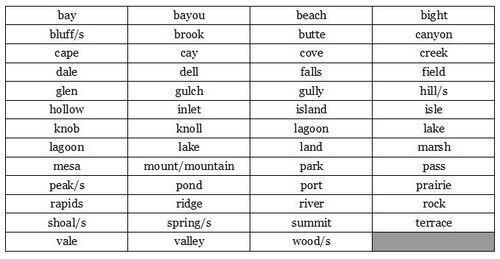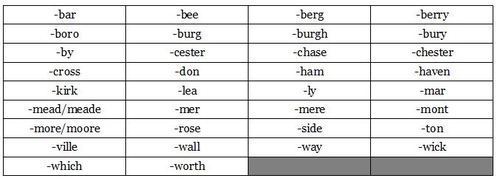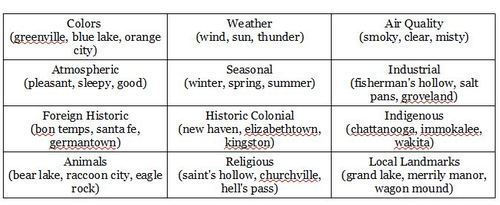How To Write A Sick Character
How to Write a Sick Character
╰ First of all — being sick is boring as hell
Nobody tells you that. You think it’s gonna be poetic and tragic and emotionally moving, maybe a few tears on the windowpane and a soft piano soundtrack? Wrong. It’s pacing in a waiting room for two hours to be told to come back next week. It’s reruns of trash TV because your brain fog is so bad you can't even process a podcast. It's Googling "why do my bones hate me" at 3 a.m. and finding nothing helpful, only vibes. So if you're writing a sick character and every scene is Deep and Heavy and Symbolic, I love you but no. Let them be bored. Let them be over it. Let them fall asleep halfway through someone’s big speech.
╰ Second — sickness is basically a toxic relationship with your own body
And wow, the drama is unmatched. One day your character wakes up and thinks, “Maybe today will be normal.” Their body: “Plot twist, bitch.” Now they’re sweating through a hoodie, canceling plans, and pretending they're “just tired” because explaining the truth is somehow more exhausting than the illness itself. Let your character hate their body sometimes. Let them feel betrayed by it. Let them mourn the version of themselves that used to just do things without needing a three-day nap after. But also—let them fight for their body, too. Advocate. Adapt. Try again. Because it’s not all despair. Sometimes it’s really freaking brave just to get out of bed and put on pants.
╰ Third — it’s not cute
Hollywood loves to write illness like it’s an aesthetic. Clean blankets, sad smiles, a gentle cough. Yeah… no. Sometimes it’s vomit in your hair. It’s medical tape pulling off skin. It’s being too tired to shower but still scrolling through memes like your life depends on it. Give us the gross stuff. The embarrassing stuff. The human stuff.
╰ Fourth — let them be funny
Sick people are hilarious. Mostly because we have to be. You’ve got two choices when your body is a disaster zone: laugh, or fully unravel. So we joke about our failing organs. We flirt with the nurse while on IV fluids. We name our medical devices. We send memes from the ER. Let your character joke. Let them be sharp, sarcastic, absurd. Not because they're “taking it well,” but because that’s their armor. Humor is one of the most honest forms of pain. Use it.
╰ Fifth — sick ≠ broken
Please hear this: your character is not less than. They are not just here to suffer and die and inspire others with their angelic perseverance. They’re a person. Maybe a chaos goblin. Maybe a genius. Maybe a mess. Maybe a lover, a fighter, a giant emotional raccoon with a heating pad. Let them live and have goals. Let them chase things. Let them screw up. Let them be loved and desired and complicated. Their illness is part of them, not all of them.
╰ Lastly — don’t wrap it up too clean
Recovery isn’t linear. Some illnesses don’t “end.” And that’s okay. You don’t need a miracle cure in the third act. Sometimes strength is just learning to exist in a different way. Sometimes it’s re-learning how to hope. Sometimes it’s finding a new rhythm instead of forcing the old one to work. Let your character find peace, not perfection. So yeah—if you’re writing a sick character, you’re doing something important. You’re making space for people whose stories rarely get told with truth and teeth and tenderness. Just promise me you won’t turn them into a symbol. Let them be a person. A funny, scared, strong, exhausted, hopeful person. Like the rest of us.
@katrein05 I Hope This Helps a little... :)
More Posts from Sparklingsilvermagnolias and Others
i can't recommend Jared Pechaček's The West Passage enough - it's a strange, gorgeous fable that I've only hesitated to post about because I've struggled to convey how good it is and why you should read it. It's like being inside the the marginalia of a medieval text. it has the perplexing consistency of Alice in Wonderland and the wistful necessity of the best kind of young adult coming of age. despite its fairytale feel, there's also a real sense of grounding in the world and the material experience of its people. i cried at the end.
and the prose is lovely:
A pigeon launched itself from a courtyard, drawing her eye up to faraway Red Tower, purpled with distance, its beacon dull in the light of day. If a wind came from there, you could get a whiff of the sea. In the windless noon, white smoke from that eternal fire drifted all over the southeastern district of the palace. Much closer was lapis-domed Blue Tower, rising from a field of white plaster walls, swirling with pigeons and the bright flecks of hummingbirds who came to drink from the flowering vines that spilled down its sides.
Things women created and discovered!
All men
Francium (elemental)
Torpedoe radio guidance/navigation systems
Dishwasher
GPS
Wi-fi
Structure of the Milky Way
Kevlar
The Earth's inner core
Aciclovir - an antiviral drug used for the treatment of herpes simplex virus infections, chickenpox, and shingles
Azathioprine - an Immunosuppressive drug used in rheumatoid arthritis, Crohn's disease, ulcerative colitis, and in kidney transplants to prevent rejection
Flossie Wong-Staal was the first scientist to clone HIV and map its genes.
Pyrimethamine was initially developed by Nobel Prize winning scientist Gertrude Elion as a treatment for malaria.
Disposable diapers
Child carriers
Vaccine for whooping cough
The galaxy rotation problem - important to the discovery of dark matter
Radio astronomy - Type I and Type III solar radio bursts
That stars are primarily composed of hydrogen and helium
The new outer arm of the Milky Way - In 2004, astrophysicist and radio astronomer Naomi McClure-Griffiths identified a new spiral arm of the Milky Way galaxy
Radiation
Radon (elemental)
Kinetic energy
Heavy elements in cosmic radiation
Beta particles are electrons
Nuclear shell
Astatine (elemental)
Nuclear fission - helped in the creation of nuclear weapons
Rhenium (elemental)
Seaborgium (elemental)
Polonium and radium (elemental)
Scotchgard
Structure of vitamin B12
Carbon Dioxide
Bioorthogonal chemistry - the concept of the bioorthogonal reaction has enabled the study of biomolecules such as glycans, proteins, and lipids.
Central heating
Square-bottomed paper bag
Correction fluid (white-out)
House solar heating
Wrinkle-free fiber
Windshield wipers
Car heater
Airplane mufflers
Underwater telescopes for warships
Written computer program
Written (programming) language
Chocolate chip cookies
Pizza saver
Mint chocolate chip ice cream
DNA structure
Sex chromosomes
Lactic acid cycle
Transporsable elements
Gap genes
Myers - Briggs Type Indicator
Hey, look at me. Look at me. I’ve said it once and I’ll say it again: you need to condition yourself to being okay with being inconvenienced by things. The first time I spoke about this I meant it in a mental health way- it is good to go out to the store and see people versus just ordering alone at home- but there is another more pressing societal issue you should be more concerned about as well.
Any service you rely on for convenience can be weaponized against you the moment you begin to rely on it. Streaming used to be a cheap and convenient way to see movies at home. It is now exorbitantly expensive, you need multiple accounts just to get what you want, and any of those movies can be taken from you at any time. And unless you have gotten used to going through the “inconvenience” of owning physical media, you can do nothing about it. Same goes for buying things on Amazon. Same goes for any service like DoorDash etc. These companies WANT you to be reliant on them for convenience so they can do whatever they want to you because, well, what else are you gonna do?
Same thing goes for the uptick in AI. If you train yourself to become reliant on AI for doing basic things, you will be taken advantage of. It is only a matter of a couple years before there are no free AI services. Not only that, but in the usage of AI’s case, it is robbing you of valuable skills that you need to curate that you will be helpless without the moment the AI companies drive in the knife the way they have done with streaming. Delivery. Cable. Internet. Etc. It will happen to AI too. And if you are not practicing skills such as. Writing. You are not only going to be at the mercy of AI companies in the digital world, but you are going to be extremely easy to take advantage of in real life too.
I am begging you to let go of learned helplessness. I am begging you to stop letting these companies TEACH you helplessness. Do something like learn to pirate. It is way more inconvenient at the beginning, but once you know how, it is one less way companies can take advantage of you. Garden. Go to the thrift store (older clothes hold up better anyway). These things take more time and effort, yes, but using time and effort are muscles you need to stretch to keep yourself from being flattened under the weight of our capitalist hellscape.
Inconvenience yourself. Please. Start with only the ways you are able. Do a little bit at a time. But do something.
Writing References: Character Development
50 Questions ⚜ Backstory ⚜ Character-driven Story
Basics: How to Write a Character ⚜ A Story-Worthy Hero
Basics: Character-Building ⚜ Character Creation
Types of Characters: Key Characters ⚜ Literary Characters ⚜ Flat & Round Characters ⚜ Morally Grey ⚜ Narrators ⚜ Allegorical Characters ⚜ Archetypes ⚜ Stereotypical Characters
Worksheets: Backstory ⚜ Character ⚜ Kill your Characters ⚜ Antagonist; Villain; Fighting ⚜ Change; Adding Action; Conflict ⚜ Character Sketch & Bible ⚜ Protagonist & Antagonist ⚜ Name; Quirks; Flaws; Motivation ⚜ "Interviewing" your Characters ⚜ "Well-Rounded" Character
Personality Traits
5 Personality Traits (OCEAN) ⚜ 16 Personality Traits (16PF)
600+ Personality Traits ⚜ 170 Quirks
East vs. West Personalities ⚜ Trait Theories
Tips/Editing
Character Issues ⚜ Character Tropes for Inspiration
"Strong" Characters ⚜ Unlikable to Likable
Tips from Rick Riordan
Writing Notes
Binge ED ⚜ Hate ⚜ Love ⚜ Identifying Character Descriptions
Childhood Bilingualism ⚜ Children's Dialogue ⚜ On Children
Culture ⚜ Culture: Two Views ⚜ Culture Shock
Dangerousness ⚜ Flaws ⚜ Fantasy Creatures
Emotional Intelligence ⚜ Genius (Giftedness)
Emotions (1) (2) ⚜ Anger ⚜ Fear ⚜ Happiness ⚜ Sadness
Emotional Universals ⚜ External & Internal Journey
Goals & Motivations ⚜ Grammar Development ⚜ Habits
Facial Expressions ⚜ Jargon ⚜ Swearing & Taboo Expressions
Happy/Excited Body Language ⚜ Laughter & Humor
Health ⚜ Frameworks of Health ⚜ Memory
Mutism ⚜ Shyness ⚜ Parenting Styles ⚜ Generations
Psychological Reactions to Unfair Behavior
Rhetoric ⚜ The Rhetorical Triangle ⚜ Logical Fallacies
Thinking ⚜ Thinking Styles ⚜ Thought Distortions
Uncommon Words: Body ⚜ Emotions
Villains ⚜ Voice & Accent
More References: Plot ⚜ World-building ⚜ Writing Resources PDFs
Write Characters Who Feel Dangerous (Even If They’re "Good")
╰ Make their unpredictability a feature, not a bug
A dangerous character isn’t just the guy with the gun. It’s the one you can’t quite predict. Maybe they’re chaotic-good. Maybe they’re lawful-evil. Maybe they’re smiling while they’re plotting the next five ways to ruin your day. If the reader can’t tell exactly what they’ll do next — congrats, you’ve made them dangerous.
╰ Give them a weapon that's personal
Anyone can have a sword. Yawn. Give your character a weapon that says something about them. A violin bow turned garrote. A candy tin full of arsenic. Their own charisma as a leash. The weapon isn’t just what they fight with, it’s how they are.
╰ Let them choose not to strike and make that scarier
Sometimes not acting is the biggest flex. A truly dangerous character doesn’t need to explode to be terrifying. They can sit back, cross their legs, sip their coffee, and say, “Not yet.” Instant chills.
╰ Layer their menace with something else, humor, kindness, sadness
One-note villains (or heroes!) are boring. A dangerous character should make you like them right up until you realize you shouldn’t have. Let them charm. Let them save the kitten. Let them do something that makes the eventual threat feel like betrayal.
╰ Show how other characters react to them
If every character treats them like a nuclear bomb in the room, your reader will, too. Even if your dangerous character is polite and quiet, the dog that won’t go near them or the boss who flinches when they smile will sell the danger harder than a blood-soaked axe.
╰ Make their danger internal as well as external
It’s not just what they can do to others. It’s what they’re fighting inside themselves. The anger. The boredom. The itch for chaos. Make them a little bit scary even to themselves, and suddenly they’re alive in ways pure external "baddies" never are.
╰ Don't make them immune to consequences
Even the most dangerous characters should get hit—physically, emotionally, socially. Otherwise, they turn into invincible cartoons. Let them lose sometimes. Let them bleed. It’ll make every moment they win feel twice as earned (and twice as scary).
╰ Tie their danger to what they love
Real threats aren't powered by anger; they're powered by love. Protectiveness can be feral. Loyalty can turn into violence. A character who's dangerous because they care about something? That's a nuclear reactor in a leather jacket.
╰ Remember: danger is a vibe, not a body count
Your character doesn’t have to kill anyone to be dangerous. Sometimes just a glance. A whispered rumor. A quiet, calculated decision to leave you alive — for now. Dangerous characters control the room without ever raising their voice.
GUIDE: NAMING A TOWN OR CITY
This post was originally from a FAQ, but since the original link is now defunct, I am re-posting it here.
There are many things to keep in mind when naming the town or city in your novel:
1) Genre/Theme/Tone
It’s very important to consider the genre and theme of your story when choosing a town name. Take these names for example, each of which indicates the genre or theme of the story: King’s Landing (sounds fantastical) Cloud City (sounds futuristic) Silent Hill (sounds scary) Sweet Valley (sounds happy and upbeat) Bikini Bottom (sounds funny) Radiator Springs (sounds car-related) Halloween Town (sounds Halloween-related) Storybrooke (sounds fairytale-related) 2) Time/Place It’s also important to consider the time and place where your story takes place. For example, you wouldn’t use “Vista Gulch” as a name for a town in Victorian England. You probably wouldn’t use it for a town in modern day North Carolina, either. Vista is a Spanish word and would normally be found in places where Spanish names are common, like Spain, Central and South America, the southwest United States (including southern California), Cuba, Puerto Rico, Dominican Republic, and Florida. 3) Size/Settlement Type An isolated town of 300 people probably won’t be Valley City, but a sprawling metropolis of 30 million could be called Windyville, because it could have started out as a small town and grew into a large city. 4) Geography Words like gulch, butte,and bayou tend to be regional terms. You probably wouldn’t find Berle’s Bayou in Idaho, or Windy Butte in Rhode Island. Words like mount, cape, and valley are dependent upon terrain. Most of the time, you won’t have a town named “mount” something unless there are hills or mountains nearby. You wouldn’t use “cape” unless the town was on a cape, which requires a large body of water. 5) History Is there a historical person or event that your town might be named after? The Simpsons’ hometown of Springfield is ironically named after its founder, Jebediah Springfield. Chattanooga, Tennessee is named after the Cherokee town that was there first. Nargothrond, in The Lord of the Rings, is an Elvish town with an Elvish name. 6) Combination of Words
person name + geographical term = Smithfield, Smith Creek
group name + geographical term = Pioneer Valley, Settlers’ Ridge
descriptive word + geographical term = Mystic Falls, Smoky Hill
person name + settlement type = Smithton, Claraville
landmark + settlement type = Bridgton, Beaconville
Word Lists
Types of Settlements

Geographical Features

Place Words

Common Suffixes

Other Descriptors

some fucking resources for all ur writing fuckin needs
* body language masterlist
* a translator that doesn’t eat ass like google translate does
* a reverse dictionary for when ur brain freezes
* 550 words to say instead of fuckin said
* 638 character traits for when ur brain freezes again
* some more body language help
(hope this helps some ppl)
Ways I Show a Character is Emotionally Burned Out (Before They Even Realize It Themselves)
I love writing characters who think they’re fine but are actually walking emotional house fires with bad coping mechanisms.
They stop doing the things they used to love and don’t even notice. Their guitar gathers dust. Their favorite podcast becomes background noise. Their hobbies feel like homework now.
They pick the path of least resistance every time, even when it hurts them. No, they don’t want to go to that thing. No, they don’t want to talk to that person. But whatever’s easier. That’s the motto now.
They’re tired but can’t sleep. Or they sleep but wake up more tired. Classic burnout move: lying in bed with their brain racing like a toddler on espresso.
They give other people emotional advice they refuse to take themselves. “You have to set boundaries!” they say—while ignoring 8 texts from someone they should’ve cut off three emotional breakdowns ago.
They cry at something stupidly small. Like spilling soup. Or a dog in a commercial. Or losing their pen. The soup is never just soup.
They say “I’m just tired” like it’s a personality trait now. And not like… emotionally drained to the bone but afraid to admit it out loud.
They ghost people they love, not out of malice, but because even replying feels like too much. Social battery? Absolutely obliterated. Texting back feels like filing taxes.
They stop reacting to big things. Catastrophes get a blank stare. Disasters feel like “just another Tuesday.” The well of feeling is running dry.
They avoid being alone with their own thoughts. Constant noise. TV always on. Music blasting. Because silence = reckoning, and reckoning is terrifying.
They start hoping something will force them to stop. An accident. A missed deadline. Someone else finally telling them, “You need a break.” Because asking for help? Unthinkable.
-
 sixteenhearts liked this · 2 weeks ago
sixteenhearts liked this · 2 weeks ago -
 caniseeyouinhell liked this · 2 weeks ago
caniseeyouinhell liked this · 2 weeks ago -
 knightofthedeadwriter liked this · 2 weeks ago
knightofthedeadwriter liked this · 2 weeks ago -
 applepidotcom liked this · 2 weeks ago
applepidotcom liked this · 2 weeks ago -
 fhteehj liked this · 3 weeks ago
fhteehj liked this · 3 weeks ago -
 gracieischaos liked this · 3 weeks ago
gracieischaos liked this · 3 weeks ago -
 sadclownbye liked this · 3 weeks ago
sadclownbye liked this · 3 weeks ago -
 icanscribblestuff liked this · 3 weeks ago
icanscribblestuff liked this · 3 weeks ago -
 cudavianka liked this · 3 weeks ago
cudavianka liked this · 3 weeks ago -
 burningbrowni3 liked this · 3 weeks ago
burningbrowni3 liked this · 3 weeks ago -
 marvelbros-oneshots reblogged this · 3 weeks ago
marvelbros-oneshots reblogged this · 3 weeks ago -
 mimemalicious reblogged this · 3 weeks ago
mimemalicious reblogged this · 3 weeks ago -
 lunercrystaldoesart liked this · 3 weeks ago
lunercrystaldoesart liked this · 3 weeks ago -
 chiefwinnernacho liked this · 3 weeks ago
chiefwinnernacho liked this · 3 weeks ago -
 stargazer-sims liked this · 3 weeks ago
stargazer-sims liked this · 3 weeks ago -
 ghostsandgod liked this · 3 weeks ago
ghostsandgod liked this · 3 weeks ago -
 moondripecho liked this · 3 weeks ago
moondripecho liked this · 3 weeks ago -
 15zailover liked this · 3 weeks ago
15zailover liked this · 3 weeks ago -
 kaypalomino liked this · 3 weeks ago
kaypalomino liked this · 3 weeks ago -
 quoinie liked this · 3 weeks ago
quoinie liked this · 3 weeks ago -
 sunkain liked this · 3 weeks ago
sunkain liked this · 3 weeks ago -
 funnyguy788 liked this · 3 weeks ago
funnyguy788 liked this · 3 weeks ago -
 praisetheplatonicism liked this · 3 weeks ago
praisetheplatonicism liked this · 3 weeks ago -
 llamaflower reblogged this · 3 weeks ago
llamaflower reblogged this · 3 weeks ago -
 llamaflower liked this · 3 weeks ago
llamaflower liked this · 3 weeks ago -
 avassiilva liked this · 3 weeks ago
avassiilva liked this · 3 weeks ago -
 daylinlavellan reblogged this · 3 weeks ago
daylinlavellan reblogged this · 3 weeks ago -
 daylinlavellan liked this · 3 weeks ago
daylinlavellan liked this · 3 weeks ago -
 myakai13 liked this · 3 weeks ago
myakai13 liked this · 3 weeks ago -
 lunaluvsu4eva liked this · 3 weeks ago
lunaluvsu4eva liked this · 3 weeks ago -
 echofoxart liked this · 3 weeks ago
echofoxart liked this · 3 weeks ago -
 lestat-de-lionfish liked this · 3 weeks ago
lestat-de-lionfish liked this · 3 weeks ago -
 privireastelelor liked this · 3 weeks ago
privireastelelor liked this · 3 weeks ago -
 acid13rain reblogged this · 3 weeks ago
acid13rain reblogged this · 3 weeks ago -
 acid13rain liked this · 3 weeks ago
acid13rain liked this · 3 weeks ago -
 zephyr-ig liked this · 3 weeks ago
zephyr-ig liked this · 3 weeks ago -
 honoa liked this · 3 weeks ago
honoa liked this · 3 weeks ago -
 narc1ssism liked this · 3 weeks ago
narc1ssism liked this · 3 weeks ago -
 sparklingsilvermagnolias reblogged this · 3 weeks ago
sparklingsilvermagnolias reblogged this · 3 weeks ago -
 bouncybaal liked this · 3 weeks ago
bouncybaal liked this · 3 weeks ago -
 vib-nerd liked this · 3 weeks ago
vib-nerd liked this · 3 weeks ago -
 officialposersblog liked this · 3 weeks ago
officialposersblog liked this · 3 weeks ago -
 smolalien101 liked this · 3 weeks ago
smolalien101 liked this · 3 weeks ago -
 doomedyurilover09 liked this · 3 weeks ago
doomedyurilover09 liked this · 3 weeks ago -
 calebsbabyapple420 liked this · 3 weeks ago
calebsbabyapple420 liked this · 3 weeks ago -
 elevenlanternfields liked this · 3 weeks ago
elevenlanternfields liked this · 3 weeks ago -
 aspashia liked this · 3 weeks ago
aspashia liked this · 3 weeks ago

119 posts


